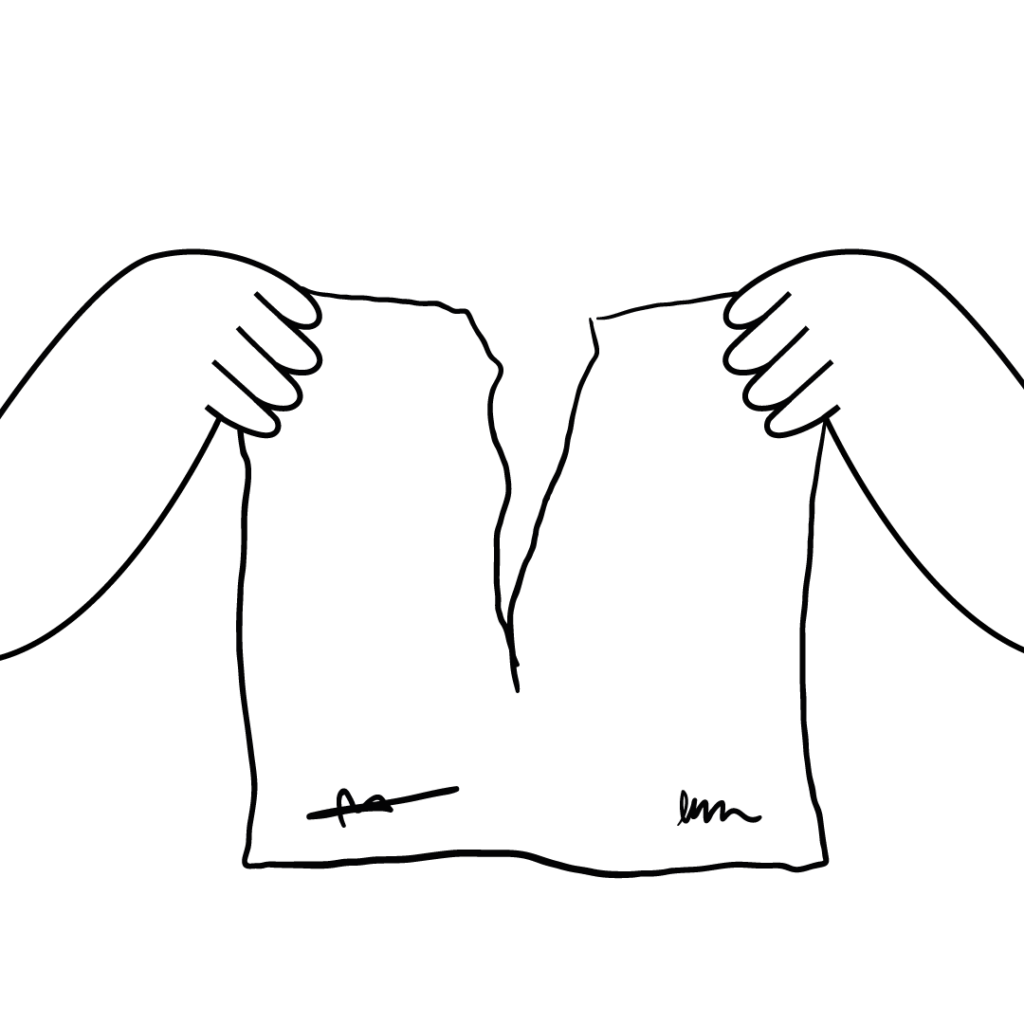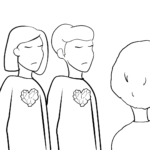MARRIAGE- A CHOICE, NOT AN OBLIGATION
Advanced today with the opportunity for financial stability the marriage of that time is no longer a need for women. Naturally, reproduction is a desire and human choice but should this be used as an excuse for the marriage stage to be done as a legal process so that normal life can continue- or the so called normal life from a normative society?
Illustration: Argjira Kukaj

Marriage had “meaning” before when generally women didn’t have the roles and same opportunities as men, during periods when the opportunity of access to the workplace didn’t exist and the need for financial safety dominated. This ideology, above others categorized men as breadwinners and women as responsible for the comfort of the home, something that makes it understood that the only way of living of women is through marriage and exactly this living consists of total avoidance of personal wishes and prioritizing pleasure of the husband.
On the other side even though they had an income, men faced the crisis on who would inherit them, and if they didn’t find the so-called soul mate, could they still be qualified as men of the house, capable of defending and preserving the family name, because this was naturally a priority. This way it’s understood why the “transaction” often called love was made. Advanced today with the opportunity for financial stability the marriage of that time is no longer a need for women. Naturally, reproduction is a desire and human choice but should this be used as an excuse for the marriage stage to be done as a legal process so that normal life can continue- or the so called normal life from a normative society?
So the leading argument we come across in every debate on choices on marital life is family creation. In particular, having children without a legitimate relationship looks non-ethical and not in compliance with “normal” and if it happens it’s skipping a step that everyone should take in their life. This oppression not only falls on the people mentioned but is also reflected on the child, and as always the eyes that watch them give them the label of “accidental, unloved”.
On the other side we have Kosovar stigma that every long-term relationship with or without children is very easily separated because the people mentioned don’t have any sort of legal obligation to value their relationship. With this sort of logical flow, we can say that signatures on a piece of paper are limiting the independence of an individual to choose on their (long-term) romantic life unless they’ve legitimated their devotion toward a person. A flow of thinking that potentially changing partners, especially after a long-term relationship, is immoral (especially for a girl) and should not happen in any way. In these borders placed by society what is left for a person is an inauthentic marriage with someone, only for family and others to have the pleasure and lack of worrying, or for them to be faced with the endless prejudiced and humiliating words on how being single comes as a result of not being worthy of being “chosen” by someone. Driven by this thought, it only popularized fast marriages, unplanned, as a result of the feeling of loneliness with is implicated by comparing yourself with the “models” around you. Unfortunately, the truth should be increasing loneliness even more in a situation others describe as completing oneself. Furthermore, the loss of personal authenticity, not knowing the person you see in front of you and the regret of having blindly spent a life which very easily could have been everything you wanted if you hadn’t lived on a suffocating society.
By saying that, in a way of calling and as a purpose for ridding stereotypes of personal happiness, the freedom to express your stance on marital life and consequently life in general should be as normalized as the choice of a pair of shoes, a movie or just choosing a part of the bread you wish to eat in the morning, because all of these are focused on personal comfort whether it be the same as the preferences of most or the only one in the area.
About the author: Puhizë Januzi, 17 years old from Gjilan, is a high school student.
Resource Center –ATRC.


